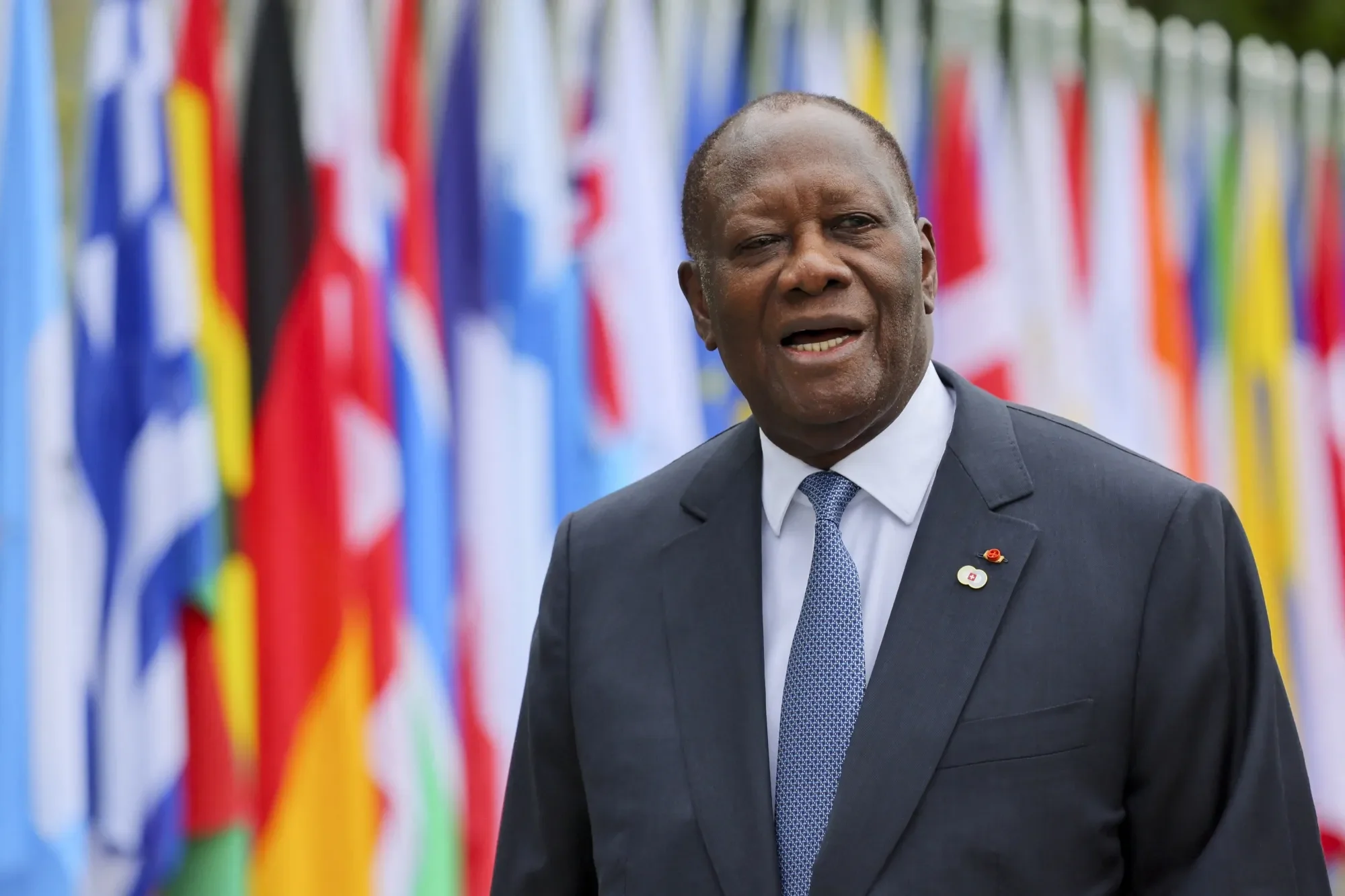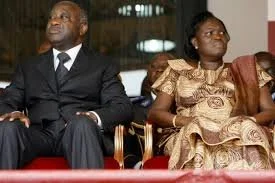Ivory Coast’s Alhassan Ouattara Secures Fourth Term in Office
In a highly contentious election marked by political strife and violence, President Alhassan Ouattara has been declared the winner of Ivory Coast's recent presidential elections, securing 89.77% of the vote. Former Commerce Minister Jean-Louis Billon and former First Lady Simone Gbagbo were the next closest candidates, securing approximately 3% and 2.4% of the vote, respectively. This announcement grants the 83-year-old a fourth term in the cocoa-rich West African country, but it also intensifies tensions in a nation grappling with a history of political unrest, deep divisions, and fractured trust in its democratic processes. The absence of key opposition figures further fueled concerns about the fairness and inclusivity of the electoral process.
Ivory Coast President, Alhassan Dramane Outtara
A history of Power
Alhassan Ouattara first rose to power in 2010, following a protracted electoral crisis that erupted after the 2000 elections. His initial victory over Laurent Gbagbo ignited a violent standoff, leading to civil conflict and Gbagbo's eventual arrest. Since then, Ouattara has maintained a firm grip on power, navigating significant economic reforms alongside persistent social unrest.
In a controversial move, Ouattara revised the constitution in 2016 to facilitate his continued presidency. Critics argue that this change was designed to entrench his authority rather than enhance democracy, drawing substantial backlash from opposition parties, civil society organizations, and international observers who view it as a blatant maneuver to consolidate power.
Banning of Opposition Leaders
The political landscape leading up to the elections was fraught with tension, exacerbated by the banning of key opposition leaders. Notably, former President Laurent Gbagbo, ex-Prime Minister Pascal Affi N'Guessan and business tycoon Tidjane Thiam were barred from participating, severely undermining the credibility of the electoral process. Gbagbo was prevented from challenging Ouattara due to a criminal conviction, while Thiam was disqualified due to dual nationality issues. Their exclusion raised alarms both domestically and internationally, highlighting the lack of a level playing field and further eroding public trust in the electoral system.
Former Ivorian President Laurent Gbagbo and ex-wife Simone Gbagbo
Violence Before and After the Election
The lead-up to the elections was marred by violence, with clashes between supporters of different factions resulting in numerous casualties. Reports indicate that at least 30 people lost their lives in the weeks preceding election day. The atmosphere was charged with fear and uncertainty, as many citizens dreaded a return to the violence that has historically plagued the nation.
Following the announcement of Ouattara's victory, protests erupted in several cities, including Abidjan, where demonstrators expressed their outrage over the electoral process and perceived injustices. Security forces responded aggressively, employing tear gas and rubber bullets, which escalated the unrest, leaving many injured and further deepening the country’s crisis.
Economic and Infrastructural Development Under Ouattara
Since 2011, Ivory Coast has experienced considerable economic growth, averaging 7.1% annually from 2012 to 2023, making it the second-fastest-growing economy in Africa. This growth has been driven by private investment and a dynamic services sector, with inflation contained at around 3.5%. The country attracted significant foreign investment, receiving $3.8 billion in 2024.
Economic Projections
The economic outlook for Ivory Coast remains favorable, with real GDP growth projected to average around 6.5% between 2024 and 2026. The World Bank anticipates growth of 6.2% in 2025, driven by hydrocarbons, services, and private investment. The discovery of significant offshore oil reserves is expected to further boost economic growth, with production targets set to triple by 2027. Despite these advancements, challenges persist. The poverty rate, projected to decline from 37.5% in 2021 to 34% by 2025, remains a significant concern. Addressing inequality and the cost of living will be crucial for achieving the government's goals by 2030.
Ivory Coast President, Alhassan Dramane Outtara
A Divided Nation
The aftermath of the elections has left Ivory Coast deeply divided. Many citizens question the legitimacy of Ouattara's victory, and the opposition has vowed to contest the results, citing widespread allegations of voter suppression and intimidation. Activists and civil society groups are calling for an independent investigation into the electoral process, emphasizing the urgent need for genuine dialogue and reconciliation to mend the fractures within Ivorian society. As Alhassan Ouattara begins another term in office, the future of Ivory Coast remains uncertain. The nation stands at a crossroads, grappling with the challenges of governance, social cohesion, and the quest for true democratic representation. Only time will tell if Ouattara can navigate these turbulent waters and unite a country yearning for peace, stability, and genuine democratic reform. The road ahead will require not only political savvy but also a commitment to inclusivity and healing in a nation marked by deep scars from its past. The call for a more transparent and equitable political landscape grows louder as the people of Ivory Coast seek a path toward recovery and genuine national unity.




